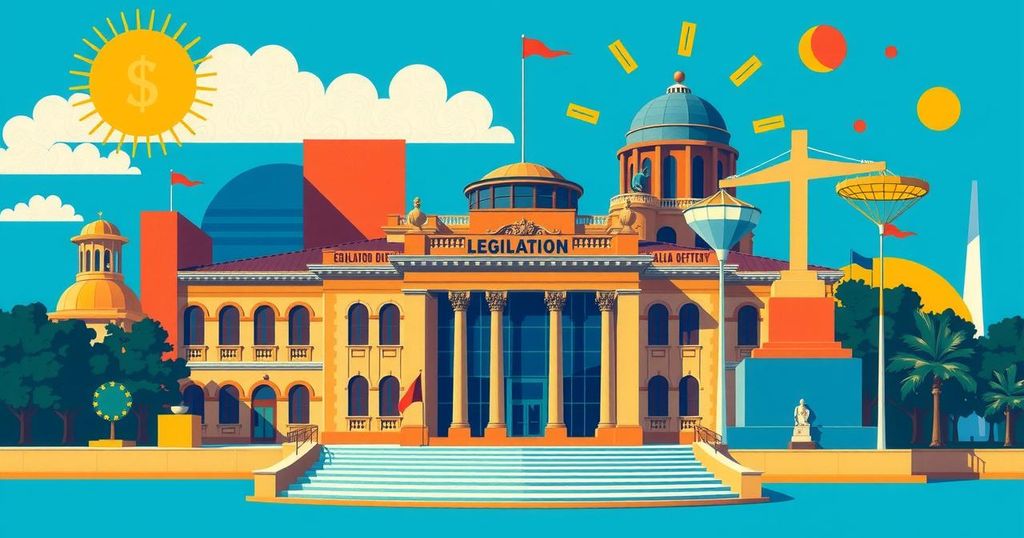Argentina’s Congress has permitted President Javier Milei to negotiate a new IMF loan on top of the existing $44 billion debt. This vote garnered support amidst protests against austerity measures. The loan aims to strengthen foreign reserves and address inflation as Milei’s administration introduces stringent financial policies.
Argentina’s Congress has authorized President Javier Milei to negotiate a new loan agreement with the International Monetary Fund (IMF), adding to the existing $44 billion debt. On March 11, Milei requested a ten-year loan to enhance the central bank’s foreign reserves and manage impending debt repayments. The precise sum of the proposed loan has not yet been disclosed, but it is a crucial step for South America’s second-largest economy, which has faced multiple bailouts from the IMF.
Under existing regulations established in 2021, the Argentine president must obtain consent from both Congressional houses for IMF negotiations, although support from just one house suffices to proceed. The Chamber of Deputies recently voted 129 in favor, 108 against, with six abstentions, thus permitting Milei to complete the loan agreement. Although Milei’s libertarian party holds a minority position, it has successfully forged temporary alliances to advance its fiscal policies.
The vote coincided with substantial protests outside the legislature, where demonstrators expressed dissatisfaction with Milei’s austerity measures and dealings with the IMF. Among the protesters, Rodolfo Celayeta, a 73-year-old retiree, remarked, “Every time something is agreed with the IMF, things get worse for us.” Notably, previous protests had escalated into violence, resulting in injuries to numerous individuals.
Milei contends that this IMF loan is essential for repaying debts to the central bank and addresses Argentina’s severe inflation issues. The nation endures one of the highest inflation rates globally. Since implementing significant public spending cuts after assuming office in December 2023, the inflation rate has decreased from 211% to 66%. Ongoing discussions with the IMF began in November to establish a new extended fund facility, intended to refinance Argentina’s current debt obligations stemming from a prior loan agreement made in 2018 under former president Mauricio Macri.
In summary, Argentina’s Congress has approved President Javier Milei’s request to negotiate a new IMF loan to strengthen the country’s foreign currency reserves and manage debt repayments. This decision arrives amidst public protests against austerity measures and a backdrop of significant inflation challenges. The potential loan aims to bolster economic stability and ease financial obligations as Argentina grapples with its chronic economic issues.
Original Source: www.sanfordherald.com






